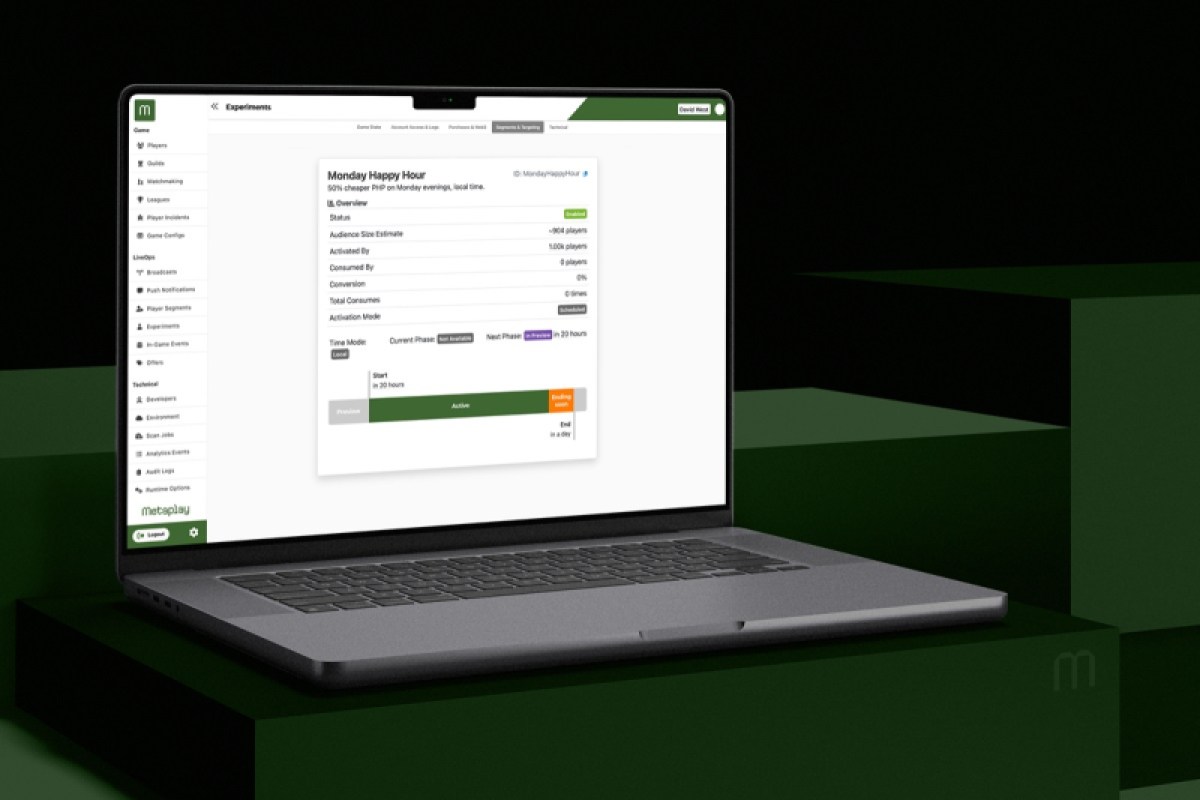Metaplay has launched a Unity software development kit (SDK) that enables mobile games to scale with their growth.
Helsinki, Finland-based Metaplay has created a fully customizable backend for game development and made it available through the Unity-based SDK. The release aims to empower ambitious developers and studios to create top-tier online mobile games that can seamlessly scale with their growth. The company made the announcement at the Pocket Gamer Connects London event.
In development for over four years in collaboration with Helsinki-based game studios like Metacore, Dodreams, and Nitro, the Metaplay SDK introduces customizable and fully extensible workflows, libraries, and tooling to professional game developers.

Previously, such resources were accessible mainly to high-end studios with substantial time, financial, and expertise resources. Now, the Metaplay SDK allows developers to create anything from simple single-player games to full real-time games with intricate social interactions.
Mobile has become the biggest part of the gaming industry. But the growing saturation in the mobile gaming market has made it challenging and expensive for developers to test new concepts for game titles.
Often, developers resort to using inexpensive and unreliable backend technology to launch a minimum viable product (MVP) quickly. This approach becomes problematic when a game gains popularity, requiring developers to upgrade their backend technology to handle user scaling and integrate more custom features, which is complex once a game is live.
Metaplay addresses this challenge by offering a robust and pre-made upgrade path, enabling developers to easily scale their backend as their games grow. The Metaplay SDK comprises four key components that cover every aspect of game development, from the initial code to LiveOps and player support.

The C# game server, a part of Metaplay’s offering, comes pre-built with all the essential features of top-tier games but is fully customizable and extensible. This allows developers to add new features and modify existing ones with ease. Metaplay ships as source code, offering developers the option to deploy it into their cloud, providing full control over their game and data.
Petri Kero, CEO of Metaplay, said in a statement, “We got tired of black-box backends holding us back when making games. So we made Metaplay, a full-stack platform with everything developers need to make a top-grossing game. Our goal has always been to take Metaplay global and help developers far and wide achieve true scale without being limited in their creative vision, and now, the time has come to make that happen.”
Metaplay said the SDK significantly lowers the barrier for entry into game development, starting at $1,085 a month. This gives developers access to a comprehensive suite of backend tech and tooling that has taken decades of person-years for the Metaplay team to build. This allows studios to focus on marketability, creative game ideas, and ultimately, provide their games with the best chance of success.
Teemu Haila, chief product officer at Metaplay, said in a statement, “Since 2019, we’ve mostly been working with a few hand-picked game studios in Helsinki to build a game-making platform that, once they’ve started using, they can’t imagine their life without it. We (and they) can confidently say the result is better than anything else out there. Now, we couldn’t be more excited to introduce Metaplay to the world, and we can’t wait for everyone to experience the incredible things you can do with it.”
Games like Merge Mansion by Metacore, Drive Ahead! by Dodreams, and Friends & Dragons by Playsome have been developed using Metaplay’s technology. Several promising venture-backed game startups in Helsinki are also using the SDK in early access.
Metaplay was founded in 2019 and it has 22 people.
GamesBeat’s creed when covering the game industry is “where passion meets business.” What does this mean? We want to tell you how the news matters to you — not just as a decision-maker at a game studio, but also as a fan of games. Whether you read our articles, listen to our podcasts, or watch our videos, GamesBeat will help you learn about the industry and enjoy engaging with it. Discover our Briefings.

